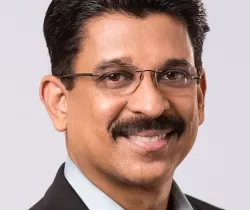Events play a fundamental role in a sales team’s ability to provide prospects with the best customer journey. Why? As a customer gets deeper into their journey, strategic face-to-face meetings must take place to close deals and ensure success. Strategic meetings, such as product demos, partner meetings, customer meetings, etc., are business-to-business meetings that can generate real outcomes.
In fact, a recent Harvard Business Review study showed that 52 percent of respondents credit event marketing with driving more business value than other marketing channels. However, only 23 percent admitted they are able to calculate an ROI for events. Integrating a customer relationship management (CRM) system with a Meeting Automation Platform (MAP) allows companies to schedule, manage and analyze B2B meetings at events, leading to greater insights related to ROI.
To take a deeper dive into the benefits of integrating a MAP with a CRM, here are three benefits of how MAP and CRM integration can fuel sales pipelines at events.
Automate scheduling and agenda updates
Confirming a meeting can take a substantial amount of time. On average, the confirmation process can require up to 14 emails back and forth. Unfortunately, most CRMs are unable to aid in meeting management by integrating with another product/platform. However, when sales teams integrate a MAP with a CRM, they can experience a fully automated process.
An account representative can request a meeting from within the CRM. From that point, all invitations will automatically be sent to each respective party. Additionally, internal attendees that have a CRM mobile app can update changes in agenda before, during and after the meeting through push notifications. Through these automation features, sales teams save time as they prepare for an upcoming event.
Record meetings for better follow-up conversations
Another challenge for sales teams at events is to keep up with the multitude of meetings that take place. CRMs, particularly Salesforce, can record meetings in the event campaign dashboard. In doing so, sales teams can include all data from mentioned pages into the meeting request process and add external attendees as members under their respective campaigns. The tracking of external attendees that participated in meetings helps sales teams to follow-up with buyers to turn potential opportunities into secured, closed deals. After an event, all meeting results can then be synced up within the CRM.
Access relevant data
It’s clear that buyers are evolving. With multiple resources available to them before even speaking with a salesperson, buyers expect sellers to provide unique insights that are customized to their needs.
Integrating a MAP with a CRM provides sales teams with the necessary information they need for each meeting. Sales teams can gain relevant and actionable insights into where each customer is in the sales pipeline. In addition to fueling sales pipelines, a MAP and CRM integration can take these insights to create reports and dashboards to help sellers secure deals and marketers showcase ROI.
If you’re looking to increase your sales pipeline at events, integrating a MAP with your CRM is necessary. As I discussed above, the integration can align sales and marketing teams, automate workflow and measure impacted revenue, allowing your team and attendees to participate in more quality, strategic meetings.
Don’t miss any event-related news: Sign up for our weekly e-newsletter HERE and engage with us on Twitter, Facebook, LinkedIn and Instagram!



Add new comment